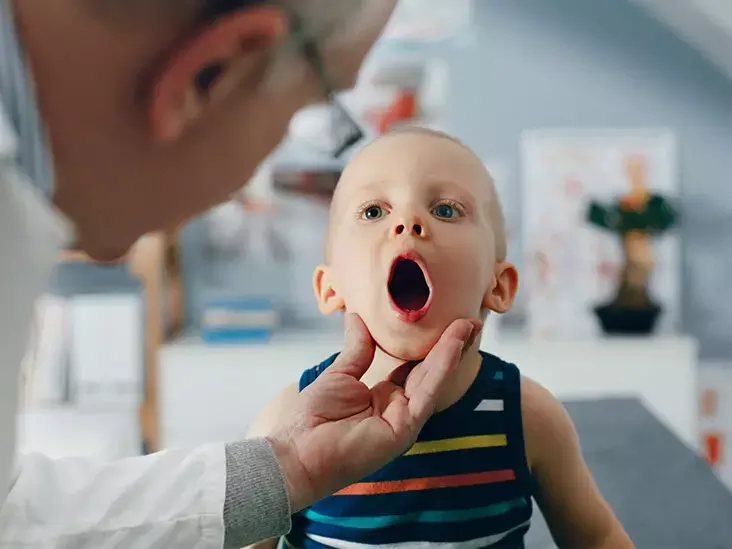- Home
- Medical news & Guidelines
- Anesthesiology
- Cardiology and CTVS
- Critical Care
- Dentistry
- Dermatology
- Diabetes and Endocrinology
- ENT
- Gastroenterology
- Medicine
- Nephrology
- Neurology
- Obstretics-Gynaecology
- Oncology
- Ophthalmology
- Orthopaedics
- Pediatrics-Neonatology
- Psychiatry
- Pulmonology
- Radiology
- Surgery
- Urology
- Laboratory Medicine
- Diet
- Nursing
- Paramedical
- Physiotherapy
- Health news
- Fact Check
- Bone Health Fact Check
- Brain Health Fact Check
- Cancer Related Fact Check
- Child Care Fact Check
- Dental and oral health fact check
- Diabetes and metabolic health fact check
- Diet and Nutrition Fact Check
- Eye and ENT Care Fact Check
- Fitness fact check
- Gut health fact check
- Heart health fact check
- Kidney health fact check
- Medical education fact check
- Men's health fact check
- Respiratory fact check
- Skin and hair care fact check
- Vaccine and Immunization fact check
- Women's health fact check
- AYUSH
- State News
- Andaman and Nicobar Islands
- Andhra Pradesh
- Arunachal Pradesh
- Assam
- Bihar
- Chandigarh
- Chattisgarh
- Dadra and Nagar Haveli
- Daman and Diu
- Delhi
- Goa
- Gujarat
- Haryana
- Himachal Pradesh
- Jammu & Kashmir
- Jharkhand
- Karnataka
- Kerala
- Ladakh
- Lakshadweep
- Madhya Pradesh
- Maharashtra
- Manipur
- Meghalaya
- Mizoram
- Nagaland
- Odisha
- Puducherry
- Punjab
- Rajasthan
- Sikkim
- Tamil Nadu
- Telangana
- Tripura
- Uttar Pradesh
- Uttrakhand
- West Bengal
- Medical Education
- Industry
Routine medications not effective in postoperative pain in cold-knife tonsillectomy

Pain control should be optimized in the first 4 days following surgery, therefore, recent research published in the International Journal of Pediatric Otorhinolaryngology has found out that although special pain control should be performed, the addition of amoxicillin, ibuprofen, prednisolone, or amoxicillin and prednisolone does not modify postoperative pain in children undergoing cold-knife tonsillectomy.
Carolina B.de Azevedo and colleagues from the Ribeirao Preto Medical School, University of São Paulo (FMRP-USP), Brazil carried out the present study to evaluate whether the use of anti-inflammatory or antibiotic in the postoperative period modifies pain in children undergoing tonsillectomy.
The authors randomized 225 children who underwent cold knife tonsillectomy ± adenoidectomy into five groups, receiving #1 metamizole/acetaminophen, #2 amoxicillin, #3 ibuprofen, #4 prednisolone, or #5 amoxicillin plus prednisolone.
All groups received oral analgesics (metamizole/acetaminophen) to use as needed. Pain was monitored during the 7 days following surgery using the Parents' Postoperative Pain Measurement (PPPM) and the Faces Pain Scale - Revised (FPS-R).
Pain was also indirectly evaluated by the dose of analgesics administered on each day and by the time needed to return to a solid diet.
The study revealed the following findings-
a. After losses (24%), 170 individuals were submitted for analysis.
b. Multiple comparisons demonstrated that the evolution of pain between the different groups, as matched day-per-day, was not significantly different by either PPPM or FPS-R (p > 0.05).
c. The instances of analgesic intake were also similar in all the groups (p > 0.05), as was the return to solid food ingestion (p = 0.41).
d. All groups presented a similar standard of clinical improvement at intervals of 2 days (p < 0.01). e. Independent of postoperative pain management, patients developed significant pain up to the day 4 following surgery.
Hence, the authors concluded that "The addition of amoxicillin, ibuprofen, prednisolone, or amoxicillin and prednisolone does not modify postoperative pain in children undergoing cold-knife tonsillectomy."
However, special pain control should be performed on the first 4 days following tonsillectomy in children, they further added.
Dr. Nandita Mohan is a practicing pediatric dentist with more than 5 years of clinical work experience. Along with this, she is equally interested in keeping herself up to date about the latest developments in the field of medicine and dentistry which is the driving force for her to be in association with Medical Dialogues. She also has her name attached with many publications; both national and international. She has pursued her BDS from Rajiv Gandhi University of Health Sciences, Bangalore and later went to enter her dream specialty (MDS) in the Department of Pedodontics and Preventive Dentistry from Pt. B.D. Sharma University of Health Sciences. Through all the years of experience, her core interest in learning something new has never stopped. She can be contacted at editorial@medicaldialogues.in. Contact no. 011-43720751
Dr Kamal Kant Kohli-MBBS, DTCD- a chest specialist with more than 30 years of practice and a flair for writing clinical articles, Dr Kamal Kant Kohli joined Medical Dialogues as a Chief Editor of Medical News. Besides writing articles, as an editor, he proofreads and verifies all the medical content published on Medical Dialogues including those coming from journals, studies,medical conferences,guidelines etc. Email: drkohli@medicaldialogues.in. Contact no. 011-43720751


